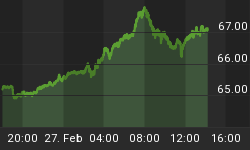Back in 2006, Amazon launched its cloud-Infrastructure-as-a -service arm, Amazon Web Service (AWS) to little fanfare. Fast forward to the present and the business is nearly unrecognizable from its humble origins—AWS exited the last quarter on a $30-billion revenue run-rate and remains Amazon’s biggest profit machine. But now, starry-eyed Wall Street analysts say Amazon is about to pivot to something far bigger--building a space empire.
Morgan Stanley analyst and Wall Street’s space economy specialist Adam Jonas is wildly bullish about Jeff Bezos’ proposed satellite internet project. Dubbed Project Kuiper, Amazon plans to set up a vast network of 3,236 small interconnected satellites to beam down high-speed internet and provide coverage for virtually every spot on the planet.
Jonas has highlighted the network’s potential, which he believes represents a “$100 billion-a-year opportunity”.
That’s more than 3x AWS’ expected haul this year and ~36 percent of Amazon’s FY 19 revenue target. While Amazon is yet to give any cost or timeline estimates for Kuiper, Jonas is optimistic that the project will one day become reality due to Amazon’s considerable financial muscle as well as Bezo’s track record of following through on his projects:
“We believe investors may want to pay attention to Jeff Bezos for the advancement of efforts in Space, as he has demonstrated both the will and, increasingly, the financial muscle to put to work,” he has told CNBC.
Jonas also bases his bullish thesis on the premises that the space economy is expected to bloom to a $1trillion industry over the next two decades.
New business for Blue Origin?
Bezos certainly has another major incentive to make Kuiper work—it could mean plenty of business for his budding space business, Blue Origin.
Bezos is the sole owner of the rocket-building company that aims to challenge Elon Musk’s SpaceX in launching satellites like Kuiper to space, sending people to Mars or the Moon as well as other interplanetary missions.
Bezos owns about 12 percent of Amazon stock currently worth about $119 billion. Actually, it would be considerably more were it not for his costly divorce that saw him give up 25 percent of the couple’s stake to ex-wife MacKenzie as part of the settlement. Bezos though did manage to retain 100 percent ownership of Blue Origin and the Washington Post.
Related: What Will Finally Slay The Bull Market?
Bezos has been pumping around $1 billion each year into his space ventures. At this rate, experts expect Blue Origin to narrow the gap with its more illustrious rival and be in a position to compete on an even keel with SpaceX by 2020. According to Jonas, the phenomenal growth of AMZN stock--up 34.3 percent in the YTD and 467 percent over the past five years---will only continue to strengthen Bezos’ space ambitions:
“As the value of Jeff Bezos’s Amazon stake approaches $200 billion, his ability to influence private, commercial, and even government efforts in space grows, potentially accelerating capabilities and capital formation,” Jonas has gushed for CNBC.
Jonas though is not the only one who thinks Blue Origin and Kuiper are a big deal. Dozens of space industry executives who have spoken to CNBC on condition of anonymity due to partnerships with, or competition against, Blue Origin share the same sentiment and have termed the launch of Kuiper ‘revolutionary.
“Global internet is a huge opportunity, especially for someone like Amazon with cloud services. If you get everyone access to the internet then you’ve just doubled your total addressable market for e-commerce, cloud, internet and any other business Amazon wants to do,” ARK Invest analyst Sam Korus has told CNBC.
The analysts have therefore enthused that the payback for Amazon will come in the form of billions of new e-commerce customers for the online retailer. Obviously, other online companies and services including gaming and new interactive media will also benefit.
Looks like a win-win for everybody concerned
By Alex Kimani for SafeHaven.com
More Top Reads From Safehaven.com:
















